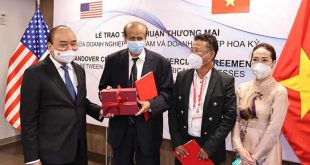INTERTANKO chairman Stephen Van Dyck is expecting delays for ships when the International Ship and Port Facility Security Code (ISPS) comes into force on July 1, but he believes it will not be a “train wreck”.
” As we close in on July 1, there are all kinds of theories about what is going to happen but I for one don’t see any evidence of a ‘train wreck’,” He commented during a visit to Singapore.
” There will probably be some delays in some parts of the world. Certainly there’s going to be many problems in terms of vessels being delayed from time to time, and people not being able to meet the requirements of Port State on arrival,” he added
” But I think we are going to find our way through that.”
On the scale of delays that shipowners will face, it is expected to vary widely from country to country, although unsurprisingly the US authorities are expected to be quite strict in enforcement.
Mr Van Dyck went on to say “Certainly the United States is going to be focusing and taking a much harder line with regard to July 1 than perhaps other places. But having said that, everybody seems realistic enough to know that they have to be accommodating but on the other hand we have to be in compliance,”
Singapore has also indicated to Intertanko that it will turn away non-compliant ships. The problems are expected to be very specific rather than amounting to major disruption, with people making adjustments as things come up.
Intertanko says that more than 90% have “plans well into the system” and the vast majority of that number have got plans approved, with 30% to 40% having actually achieved certification.
However 1% of members say that they do not expect to meet the July 1 deadline. “So we’ve got a high degree of confidence,” Intertanko managing director Peter Swift said. “Whether that is well placed, we will see.”
An enormous squeeze is expected in some countries by mid-June and shipowners are hoping there are enough auditors to complete the process.
Source: Port Technology International – 24 May 2004
 Vietnam Seaports Association
Vietnam Seaports Association




